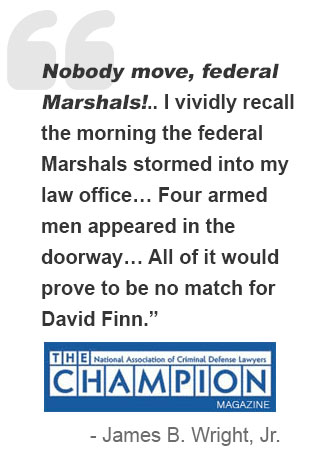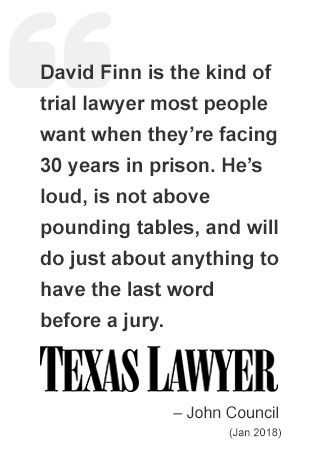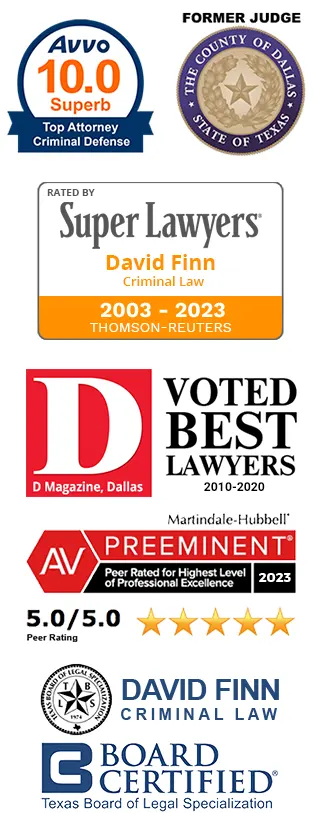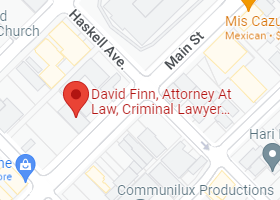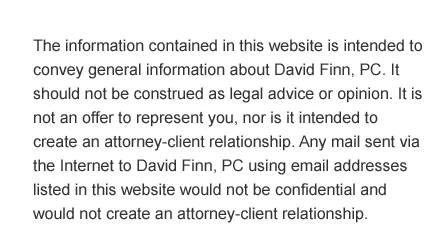


Presumption of Innocence? Guess the Judge
IN THE
TENTH COURT OF APPEALS
No. 10-06-00409-CR
Tony Ezzerret Mason,
Appellant
v.
The State of Texas,
Appellee
From the 40th District Court
Ellis County, Texas
Trial Court No. 30506CR/A
Opinion
Mason appeals his convictions for capital murder in which the State did not seek the death penalty and for intentional serious bodily injury to a child. See Tex. Penal Code Ann. § 19.03 (Vernon Supp. 2006), § 22.04(a)(1), (e) (Vernon Supp. 2006). We affirm.
In Masonâs one issue, he complains of the trial courtâs qualification of the venire panel. Mason argues generally:
Even before any of the jurors heard a single witness, the trial judge had told them he was capable of handling the case without a jury, that the only reason the case had not settled previously was because one of the parties was being unreasonable, that defendants are presumed innocent but are not, and that the jury can fudge on the beyond-the-reasonable-doubt standard because it is a subjective standard. Appellant had to proceed under the shadow of comments that one of the parties was being unreasonable in having a jury trial in the first place. In the context of the trial that thereafter developed, the jurors would have known precisely about whom the trial judge was referring, which would have only further tipped the scales in the Stateâs direction.
(Mason Br. at 14-15.) Masonâs argument does not fairly represent the trial judgeâs admonitions.
Mason did not object to the admonitions of which he complains. The Texas Rules of Appellate Procedure provide, âAs a prerequisite to presenting a complaint for appellate review, the record must show that . . . the complaint was made to the trial court . . . .â? Tex. R. App. P. 33.1(a). The Rules of Appellate Procedure also provide, however, âIn a criminal case, nothing in these rules precludes taking notice of fundamental errors affecting substantial rights although they were not brought to the attention of the court.â? Tex. R. Evid. 103(d). âExcept for complaints involving systemic (or absolute) requirements, or rights that are waivable only . . . all other complaints, whether constitutional, statutory, or otherwise, are forfeited by failure to comply with Rule 33.1(a).â? Neal v. State, 150 S.W.3d 169, 174 (Tex. Crim. App. 2004) (quoting Mendez v. State, 138 S.W.3d 334, 342 (Tex. Crim. App. 2004)); accord Reyna v. State, 168 S.W.3d 173, 177 (Tex. Crim. App. 2005); Martinez v. State, 91 S.W.3d 331, 335-36 (Tex. Crim. App. 2002); Marin v. State, 851 S.W.2d 275, 278-80 (Tex. Crim. App. 1993); see Barnett v. State, 189 S.W.3d 272, 278 (Tex. Crim. App. 2006). Mason cites Blue v. Texas for the proposition that âcomments tainting the presumption of innocence in front of the jury are fundamental error, of constitutional dimension, and require no objection.â? (Mason Br. at 9 (citing Blue v. State, 41 S.W.3d 129, 132 (Tex. Crim. App. 2000) [(plurality op.)])); but see Brumit v. State, 206 S.W.3d 639, 644-46 (Tex. Crim. App. 2006); Saldano v. State, 70 S.W.3d 873, 889 n.72 (Tex. Crim. App. 2002); Jasper v. State, 61 S.W.3d 413, 421 (Tex. Crim. App. 2001); Aimufua v. State, No. 10-00-223-CR, 2003 Tex. App. LEXIS 10694, at *10 (Tex. App.âWaco Dec. 19, 2003, no pet.) (mem. op.) (not designated for publication).
First, Mason complains of the following italicized admonitions:
We trust your jury service will be educational and instructional to you, but more importantly I hope at the conclusion of your service that youâll find out why youâre here, why itâs important that youâre here, and why itâs necessary that you be here.
I would just as soon do without you. I would just as soon make all the decisions myself if youâd just let me; but you didnât want me to do that. You wanted to haveâIâve got a good volunteer right now. Iâve had people tell me that if I did have that authority, I would become insufferable so you might want to double think that.
Once people get that, they kind of change sometimes. So anyway you decided you wanted to have the opportunity to have your decisions or your disputes settled by your fellow citizens. And the system wonât work without the active participation of the citizenry. You decided you wanted to have the opportunity to do this.
And you need to look at it from this point of view. This time itâs somebody elseâs problem. The next time it might be your problem. It might be your loved oneâs problem.
(Mason Br. at 9 (quoting 6 R.R. at 5-6) (italics added in Mason).) Mason argues:
Although the trial judge gave the venire good information, he also gave the venire additional information, and it is this additional information about which appellant is complaining. The trial judge told the venire that he was quite capable of handling this case and, inferentially, that involving the venire was a waste of the venireâs time. The trial judgeâs subsequent comments effectively explain why a jury trial was a waste of everyoneâs time.
(Mason Br. at 9-10.) Fairly read, the trial judgeâs admonitions, perhaps in jest, concern the peopleâs determination of the structure of the judicial system rather than Masonâs election of a jury trial or the merits of Masonâs case.
Next, Mason complains of the following italicized admonitions:
Thereâs no magic formula to it. Over 90 percent of cases that are filed in these United States of America are settled. And theyâre settled in two manners. If theyâre a civil case theyâre usually settled by an agreement between the parties. Doesnât matter whether the judge approves it or not.
Criminal case, itâs settled by an agreement between the parties with the approval of the Court. The Court has to approve the agreement. And like I said, over 90 percent of those cases are settled. And theyâre not settled because we went back to the office and threw darts at a board and said where theyâre going to land.
Itâs because jurors have told us how they want particular cases under particular situations under certain circumstances settled. And we use that in determining similar cases that come up in the future how to determine them. And most of the time nobody wants to beat their head on a wall.
If they know enough information and they can determine how they think an Ellis County jury will settle a particular case under particular circumstances, then they can settle it. On the other hand, the systemâs also designed if you want to beat your head on the wall, you can do that too. Itâs your privilege.
An [sic] so if you have anyâif either sideâthat is, on either side of the civil case or either side of a criminal case, the prosecution or defense, has a disagreement as to how an Ellis County jury would settle this case, then either side has the right to have a jury determine how itâs going to be settled. And thatâs what weâre going to be doing.
(Mason Br. at 10 (quoting 6 R.R. at 8-9) (italics added in Mason).) Mason argues:
Here the trial judge is telling the venire that one of the parties is being unreasonable. From experience, the trial judge already knew how the case would turn out. The trial judge attempts to qualify his statements so that they could be construed to apply to either party. In the context of his other comments, however, the venire would take his comments to be a reference to the defendant. The prosecutors would know precisely what an offense would be worth in Ellis County. The venire would be hard pressed to assume the prosecutor would not know how to evaluate a case and hard pressed to assume the prosecutor would make an unreasonable settlement offer. The only person who might balk at a reasonable offer is the defendant, who would actually have to serve the time. In that context, the implicit reference is to the number of years a case is worth. That is, the question of guilt is a given, and the punishment is the item in controversy. These comments undermine the presumption of innocence.
(Mason Br. at 10-11.) The trial judge admonished the jury that the parties could not agree on the safe harbor of a plea to the court, and that one or both parties instead preferred to risk the uncertainties of trial. Fairly read, again, the admonitions do not signify that Masonâs election of a jury trial is unreasonable.[1]
Next, Mason complains of the following italicized admonitions:
Before you can convict somebody youâll have to find the evidence is sufficient to convince you and your otherâ11 other fellow jurors that somebodyâs guilty beyond a reasonable doubt.
How much proof is that? How much proof does it take to convince 12 jurors assembled at random from across the county that you proved your caseâtheir evidence is sufficient to prove it by a preponderance of the evidence or on the other hand in a criminal case beyond a reasonable doubt.
You tell us that. Itâs very subjective, but I assure you that the judge and the attorneys get a feel of what it takes so you set those standards. Like I say, youâre only here to judge the case that youâre on, but your verdict becomes part of the information thatâs stored in our memory as to how similar cases of like nature under similar circumstances ought to be settled because you told us how you wanted them settled.
(Mason Br. at 11-12 (quoting 6 R.R. at 10-11) (emphasis added in Mason).) Mason argues:
The burden of proof is not subjective. The burden of proof is objectiveâit is beyond a reasonable doubt. If the juror retains a reasonable doubt, the State has not met its burden.
The weight and credibility determinations are subjective. That is where jurors have latitude and discretion.
The comments, however, had already done their damage because they removed one of the major lynchpins of the a criminal proceedingâthe burden of proof. The trial judge announced the burden of proof and then promptly told the venire it was a subjective standard, that is, that the jury could decide for itself what it meant.
The trial judge also indicated both he and attorneys already knew how jurors in Ellis County applied the beyond-a-reasonable doubt standard. Tying this in with the trial judgeâs other comments, the trial judge was also saying he already knew how the case should turn out. As explained above, without specifying appellant specifically, the trial judge was nevertheless inferentially identifying appellant as being unreasonable by insisting upon a jury trial. The comments undermine the presumption of innocence.
(Mason Br. at 12 (citing 6 R.R. at 10-11).) However, âit is plain that prospective jurors may form their own definitions of proof beyond a reasonable doubt and they are not challengeable for cause based upon the type and amount of evidence they require to reach that level of confidence.â? Murphy v. State, 112 S.W.3d 592, 598 (Tex. Crim. App. 2003); accord Howard v. State, 941 S.W.2d 102, 127 (Tex. Crim. App. 1996); Garrett v. State, 851 S.W.2d 853, 859 (Tex. Crim. App. 1993). The trial judgeâs admonition that the jurors have considerable liberty in determining what quantum of evidence persuaded them beyond a reasonable doubt was not improper.
Lastly, Mason complains of the following italicized admonitions:
All right. And in criminal cases we have two phase trials, what they call bifurcated trials, guilt or innocence and punishment phase. And the first phase of the case which is guilt-innocence phase, the jury hears and is permitted to hear anything under the law, under the rules theyâre allowed to hear that is relevant to the issue of is the defendant guilty of the offense with which theyâre charged?
You donât hear any evidence of whether a defendant has been arrested 100 times before or has never been arrested before in their life generally. You donât hear that theyâve got a criminal record or they donât have a criminal record.
Generally you donât hear that they have invented the cure for cancer or they go home and kick their dog and steal their grandmotherâs social security check and go out and buy dope with it.
You donât hear that in the guilt or innocence phase generally because itâs not relevant to the issue of whether or not they committed the offense with which theyâre charged. So in the guilt-innocence phase of the case theyâre concentrating on that.
Whether somebodyâs a good guy or a bad guy, you get to hear that later if we get that far.
(Mason Br. at 13 (quoting 6 R.R. at 65-66) (emphasis added in Mason).) Mason argues:
A defendant is not concerned about the jury learning positive information about him. For that matter, the prosecutor too probably has little interest, one way or the other, regarding the juryâs learning positive things about the defendant. Of particular interest to both the prosecutor and the defendant is the jury learning negative information about him, particularly during the trial on guilt or innocence. The trial judge can make reference to good information, but the comments that will stick with the venire are those indicating that may be additional bad information that the jurors will not be allowed to hear until the punishment phase.
(Mason Br. at 13.) Fairly read, again, the trial judgeâs admonitions do not effectively imply that evidence of Masonâs bad character exists.
The trial judgeâs qualification of the venire panel did not vitiate the presumption of innocence. Mason failed to preserve a complaint for appellate review. We overrule Masonâs issue.
Having overruled Masonâs sole issue, we affirm.
TOM GRAY
Chief Justice
Before Chief Justice Gray,
Justice Vance, and
Justice Reyna
(Justice Vance dissenting)
Affirmed
Opinion delivered and filed September 12, 2007
Publish
[CRPM]Phone Numbers
Office: (214) 538-6629

